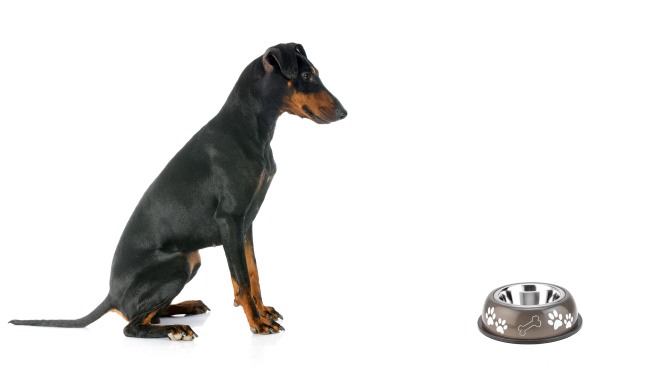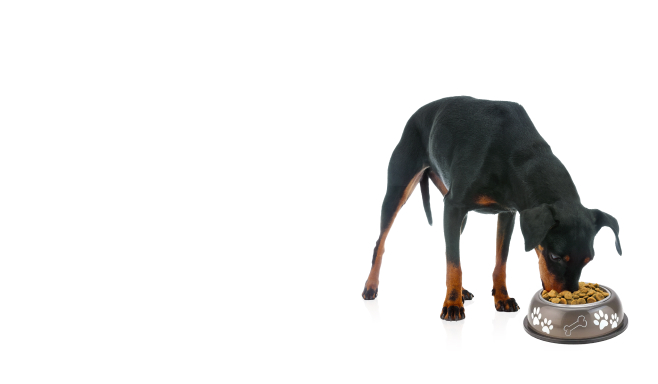If you need help calculating the right amount of food for your pet, use our calculator.
Properly adjusted feeding amount plays a key role in keeping your dog healthy, fit, and full of energy. By feeding your dog the right amount of food, you are providing it with nutrition that meets its needs and lifestyle.
The right amount of food is just as important as its quality!

Our calculator is a great tool to get you started, but it's important to adjust the amount of food according to your dog's individual needs, activity and age.
Every dog is different and only the owner knows best what condition their dog should be in.Make sure you don't feed your dog too much or too little and provide plenty of fresh water.


Easily visible ribs, spine and hip bones. Obvious waist and stomach. Little or no fat can be felt under the skin.

Ribs, spine, pelvic bones are not visible. Slight waist and tummy tuck. A thin layer of fatty tissue on the chest.

Ribs, spine, pelvic bones are hard to feel. Abdomen in the region of the ribs without narrowing. Fat deposits on the neck, spine and tail.
The calculation of the feed ration is calculated as the amount of energy to maintain vital functions per one kg of weight, and this value is multiplied by the dog's load coefficient, which varies according to physical activity.
It always depends on the owner's conditions and time, but in the case of teenagers, adults and older dogs, it is ideal to feed twice a day.
The dog should have its own place where it can eat its food in peace. From a digestive point of view, it is certainly not ideal for a dog to run in from a walk and go eat. The same applies to physical activity after a meal. It is always true that the dog should have plenty of rest before and after eating. If you are going to do more physical activity with your dog, make sure that he does not eat later than 2 hours in advance and ensure that he drinks enough fluids.
If these are general feeding instructions that cannot take into account the dog's individual energy expenditure, it is always necessary, and sometimes even very radically, to adjust the feed dose according to such needs.
In the case of our feeding guide, which takes into account the dog's individual load, we can say that the feeding dose is very accurate. However, giving supplements or treats also contributes to the physical condition of each dog. Therefore, it is still necessary to carefully monitor your dog and, in the event that he loses weight or gains weight, adjust the feeding dose.